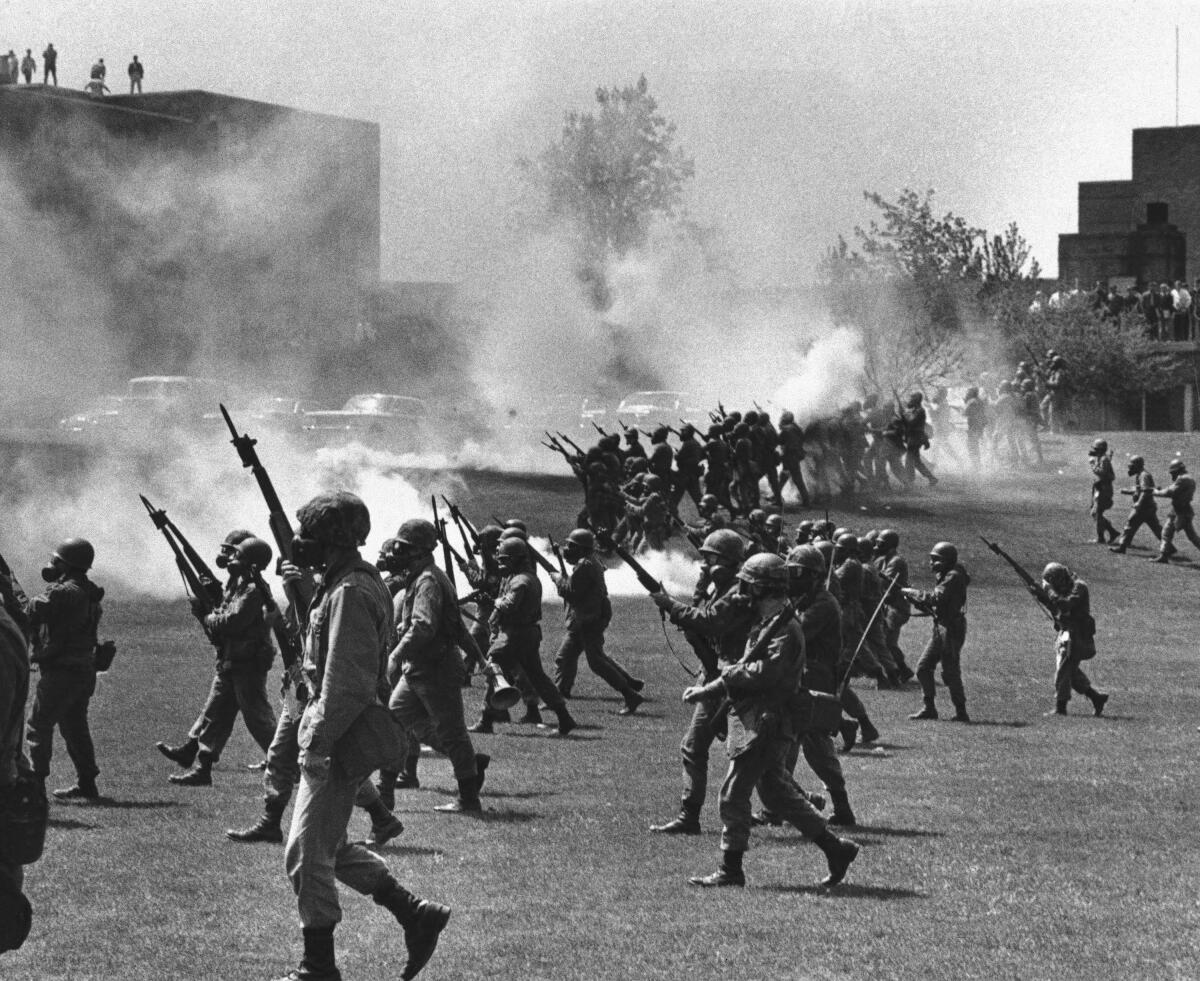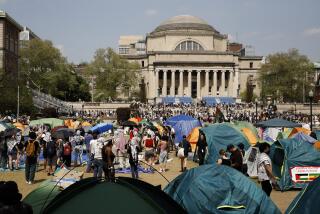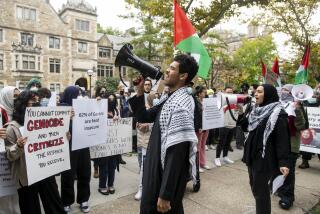Letters to the Editor: Protesting is a lot more difficult when you’re poor and have everything to lose

- Share via
To the editor: I related to Sandy Banks’ column on the Kent State massacre 50 years ago. Like her, I was from Cleveland, and at the time I was a graduate student at Ohio State.
When the riots started at Ohio State in Columbus, I was on my way to the campus dental clinic. I took one look at the approaching rioters, turned around and ran back to my dorm. Later that day, the campus was closed, and we all had to go home.
Like Banks, I always wondered why people like me were not involved in the protests. For years I felt guilty and perplexed by my inaction, but gradually I realized most of the protesters came from the white middle class. People like me, from the white working class and the first in the family to go to college, had too much to lose.
Winning the fellowship to Ohio State was like winning the lottery for me. If I lost it, there would be no second chances.
Like Banks, I was deeply saddened by the tragedy at Kent State and will never forget it.
Linda Mele Johnson, Long Beach
..
To the editor: There isn’t much of a lesson in Banks’ essay on the Kent State shootings, unless it’s that black folks rarely want to face down white folks carrying guns. Be it law enforcement, military or armed citizens insistent on their right to sunbathe, history has taught us it is a losing game.
The hallowed ground of Kent State will always mark a sign post in American civil disobedience. And black folks are no strangers to the history of protest and martyrdom in this country.
The Black United Students at Kent State, whose members Banks reports were being urged to remain in their dorms the day of the massacre, might come off as cowardly, when clearly they understood who gets shot first.
Haleemon Anderson, Los Angeles
..
To the editor: I was fascinated by Banks’ insightful essay on the reaction of black students to the Ohio National Guard’s presence at Kent State 50 years ago.
I’m wondering if there will be a similar article memorializing the killing of black students 11 days later on the campus of Jackson State University in Mississippi’s capital by local and state police — as those students were protesting U.S. racism and our war in Southeast Asia.
The killings at Kent State on May 4, 1970, mark a tragic day for the students, their families and this country. May 15, 1970, marks only one day of the ongoing tragedy of racist killings of African Americans by police officers and those shielded by a biased justice system.
Alan Myerson, Culver City
More to Read
A cure for the common opinion
Get thought-provoking perspectives with our weekly newsletter.
You may occasionally receive promotional content from the Los Angeles Times.









